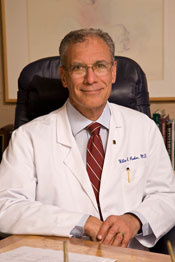Authors: Twijnstra AR, Blikkendaal MD, van Zwet EW, van Kesteren PJ, de Kroon CD, Jansen FW.
Journal: Obstetrics and Gynecology. 2012;119:700-8.
Study from: Leiden University Medical Center, the Netherlands.
Problem: Can a successful surgery be predicted from the surgeon’s experience or other measures of his/her surgical skill.
Study: The outcomes of 1,534 laparoscopic hysterectomies performed by 79 surgeons were studied.
Results: Once a surgeon performed 125 surgeries there was less risk of complications during surgery. Other factors that increased the risks of complications were a larger uterus (large fibroids), a heavier patient and women with scar tissue from previous abdominal surgeries. The authors also identified an individual “surgical skills factor” suggesting that some surgeons are better than others.
Authors’ Conclusions: An increase in the surgeon’s experience predicted a successful outcome with respect to less bleeding and complications. However, there was a large variation in proficiency between individual surgeons. The fact that a surgeon has performed many laparoscopic hysterectomies did not necessarily guarantee a good surgical outcome.
Dr. Parker’s Comments: In an earlier post, I reviewed an article showing that surgeons who operated on a regular basis had better results than surgeons who operated infrequently. The article reviewed here reinforces this idea and suggests that it takes about 125 procedures to become an expert surgeon. The study also suggests that despite performing 125 procedures, some surgeons will be better than others.
Over the 20 years I have been training residents and fellows, differences in surgical skills and judgment have been noticeable. Some gynecologists-in-training have it and some don’t. In addition to learning the anatomy of the female pelvis and learning which instruments work best for each part of the procedure, skills such as hand-eye co-ordination, moving in a 3-dimensional space and an unhurried, thoughtful approach to surgical technique seem to be more natural talents that are hard to teach and may not improve even with practice.
As I stated in that earlier post, it is important to ask your surgeon how many procedures like yours they have performed. But, it is also important to ask if they have had any complications and what were they.



